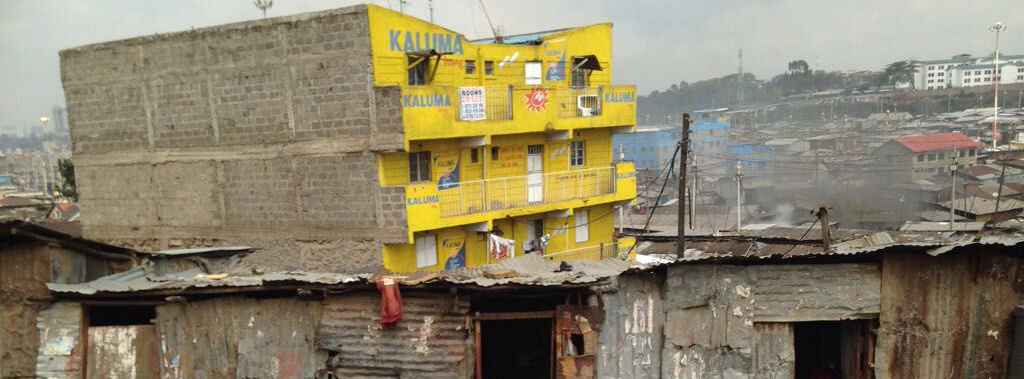The UN Special Rapporteur on Adequate Housing presented her 2018 annual report at the last session of the Human Rights Council, held in March 2018. Special Rapporteur Farha welcomed government initiatives to implement rights-based housing strategies, yet stressed the need to continue to advance national commitments and international agendas attention in this regard. The report represents another stage for “The Shift”, a global campaign supported by UCLG and our Committee in order to mobilize stakeholders involved in the implementation of Agenda 2030 on the realization of the Right to Housing.
Developing housing strategies with a rights-based perspective
The starting point of the report lies in the need to differentiate between housing policies and strategies. According to the Rapporteur, a housing policy “is composed of a number of programmes that address current housing issues, including homelessness, social housing supply or access to housing in the private market”. In contrast, housing strategies “operate at a higher level than housing policy and programmes and are based on a vision of structural change that is required over time”.
“Rights-based housing strategies should draw on the right to housing not only as a set of legal standards, but also as a transformative vision and a call to action. This vision motivates local and national governments, social movements and communities around the world to act. Strategies must be “living documents” that evolve and respond as new challenges arise, and new voices are heard”
Leilani Farha, UN Special Rapporteur on Adequate Housing
In the framework of the objectives set by the 2030 Agenda, a housing strategy must ensure that no one is left behind. This implies that “it must aim to change societies in which significant numbers of people are deprived of the right to adequate housing”. According to the Rapporteur, the human rights framework is essential to ensure overall effectiveness of housing strategies because it acts as a “corrective mechanism through which to reassess the components of housing strategies with a view to ensuring that no one is left behind and that progress is continuously achieved”. It helps inform decision-makers and clarifies responsibilities.

Key principles to take into account
In her report, the Rapporteur proposes ten key principles for a human rights-based housing strategy:
- to be based in law and legal standards (the right to housing should thus be recognized in housing strategies as a legal right and be subject to effective remedies);
- prioritize those most in need and ensure equality;
- be comprehensive at all levels and take into account the whole-of-government approach;
- ensure rights-based participation (i.e., “Rights-based housing strategies must firmly commit to ensuring meaningful participation of affected persons at every stage, from design to implementation to monitoring.”);
- establish accountable budgets and achieve tax justice (complying with the standard of “maximum of available resources” and “all appropriate means”;
- set rights-based goals and timelines (in line with the results they have committed to achieve in the Sustainable Development Goals and the New Urban Agenda);
- put in place an accountability and monitoring mechanism (noting that “Effective monitoring of the implementation and outcomes of housing strategies is a firm obligation of States”);
- ensure access to justice (access to remedies in case of rights violations);
- clarify the obligations of private actors and regulate financial, housing and real estate markets; and
- implement international cooperation and assistance.
In the report, each of these ten principles is accompanied by specific descriptions and provides concrete examples of public actions (mainly at the local level) to implement the right to housing.

The role of local governments and international cooperation
There are several specific references in the report that show how municipalities around the world are already committed to promote and defend the right to housing. This is the case of Seoul, which aims to guarantee access to justice: “A number of cities have ombudsperson offices that provide complaints procedures for violations of the right to housing. To complement its designation as a human rights city, Seoul created a local committee on human rights and an ombudsperson office to which local residents can take their complaints”.
The report also highlights the efforts of several municipalities in establishing obligations to private stakeholders and developers, as well as to regulate the financial, housing and real estate markets: “Many local governments require developers to ensure that at least a minimum proportion of new housing units are affordable. In Montreal, Canada, 15 per cent of units are required to be affordable, whereas in London, that figure is 25 per cent, and in the Plaine Commune in Paris it is 40 per cent”.
The report also defends the need to strengthen local autonomy in relation to the right to housing in areas such as regulation of financial and housing markets, access to local finance or participation.
Thus, “Strategies must ensure that sufficient funds, taxation provisions or other means of securing resources are made available to local governments where they are allocated housing responsibilities”. It equally notes how “local governments have a critical bridging role to play in supporting participation because they are often best situated to engage directly with local communities and bring their concerns into local governance, intergovernmental negotiations and national level strategies”.
Finally, the report recalls the importance of intermunicipal cooperation and international solidarity to advance the right to housing. It mentions the Bogotá Commitment and Action Agenda of UCLG as a document “which suggests innovative approaches to integrate local government into international development mechanisms and institutions in order to ensure the realization of the New Urban Agenda, the Paris Agreement and other international agreements”.

